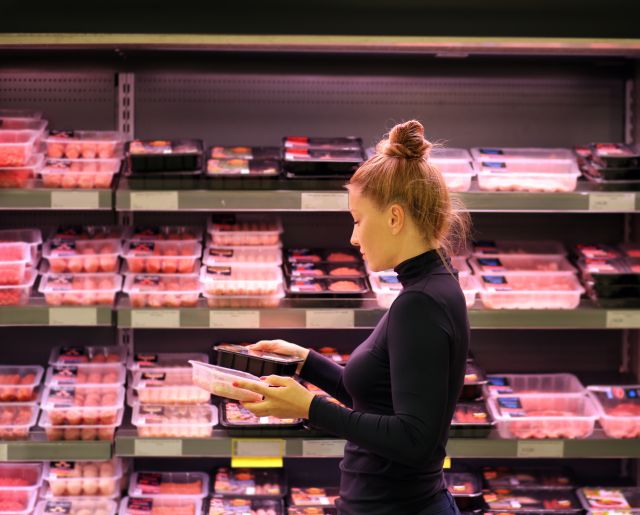Updated on March 29, 2024.
The next time you choose a meal, you may want to skip deli meat and opt for lean protein like chicken or fish. Why? Research suggests that women who eat a lot of red or processed meats have a higher risk for breast cancer.
One large 2020 review published in the International Journal of Environmental Research and Public Health linked the two, for example. It also found that diets low in red or processed meat—such as the Mediterranean diet which is rich in fruits, vegetables, whole grains, and lean protein like chicken, beans, and fish, and low in salt, added sugars and saturated fat (which is solid at room temperature, like butter) —may be associated with a smaller chance of developing the disease.
Possible ways red meat may increase breast cancer risk
While an exact explanation for the connection isn’t clear, researchers have a few guesses.
One possibility is that red meat that's been cooked at high temperatures has been shown to release potentially cancer-causing substances. Using high-heat cooking methods—such as grilling—causes fat to drip onto coals, which generates compounds called polycyclic aromatic hydrocarbons (PAHs). These can end up on your burger or steak, and when eaten, PAHs may harm cells.
Another theory is that hormones given to cattle to increase their growth may also raise certain hormone levels within humans, which could increase the risk for breast cancer. Processed meats like deli meats and cold cuts contain nitrates and nitrites, too, which have been associated with greater odds of breast cancer. Some research suggests that the higher saturated fat of meat compared to other lean proteins may play a role. People who eat less red or processed meat may also tend to have other healthy habits that help lower the chances of breast cancer.
One 2019 study published in the International Journal of Cancer supported some of these theories. Though researchers did not find links between breast cancer and cooking method, risk for breast cancer was tied to compounds in red meat that may contribute to increased tumor formation. In addition, substituting poultry like chicken or turkey for red meat was associated with decreased risk for breast cancer.
Limiting your red meat intake
Breast cancer isn’t the only health issue associated with red and processed meat consumption. There’s compelling evidence that diets high in these types of meat may raise a person’s risk for additional health problems like heart disease, Alzheimer’s disease (a brain condition that causes problems with thinking, memory, and making decisions), stroke, type 2 diabetes, and colorectal cancer. Limiting your consumption of red meat and processed meats may lower your risk for these conditions.
Here are some tips to help you cut down on red and processed meats:
Trade hamburgers for alternative patties. Veggie, turkety or chicken burgers, and large mushroom caps can be heart-healthy substitutes for red meat patties.
Try adding more beans. Soups, stews, and casseroles can still taste great with less beef and more beans. Beans are an excellent meat substitute because they are high in protein, filled with fiber, low in fat, and low in cost.
Assess your day for realistic areas to adjust. For example, if you’re having a hamburger for lunch, try a turkey, tuna, or egg salad sandwich. As you get used to eating less red and processed meat, over time you might that you are skipping it and more and more meals.
Watch portion sizes. Experts recommend that healthy adults eat about 26 ounces of eggs, poultry, or meat each week, which works out to about 3 or 4 ounces per day. One 3- or 4-ounce serving of red meat cooks down to about the size of a deck of cards or the palm of your hand.






